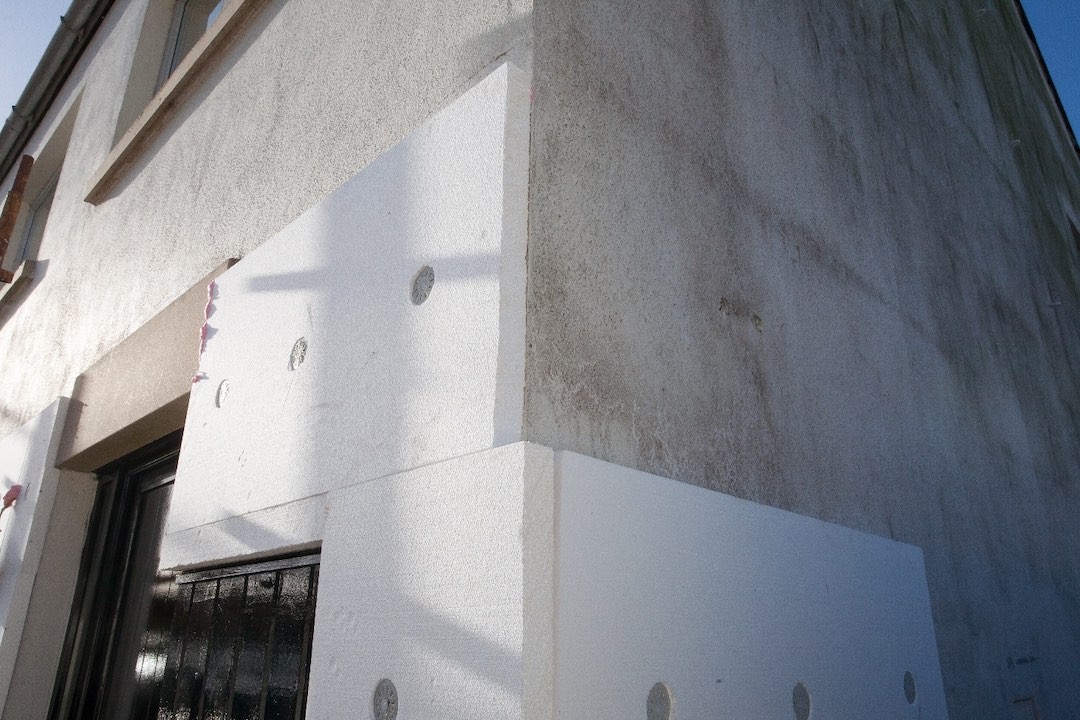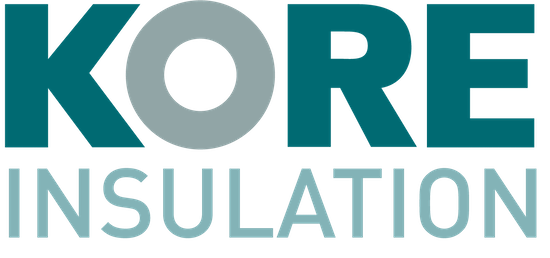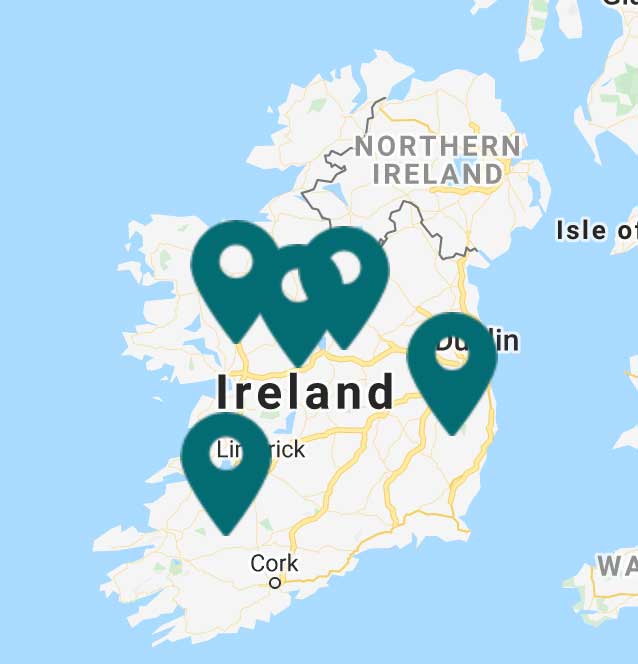New Better Energy Homes Scheme Pilot Soon to be Available to Homeowners

Denis Naughten, the Minister for Climate Action and the Environment, has announced a deep retrofit scheme that will soon be available to homeowners in Ireland. The announced €5 million Euro budget per annum will go towards helping homeowners install deep retrofit measures in their home, increasing energy efficiency while decreasing greenhouse gas emissions. The scheme will help to drastically improve access to funding, meaning homeowners will pay less out of pocket for upgrading the energy efficiency of their homes.
What’s “Deep Retrofit”?
Funding to increase the energy efficiency of homes across Ireland has been available for a number of years, under both the Better Energy Homes Scheme and the Better Energy Warmer Homes Scheme. Until now, these schemes have provided funding for limited measures, including:
- Cavity Wall Insulation
- External Wall Insulation
- Internal Wall Dry Lining
- Attic Insulation
- High Efficiency Oil & Gas Fired Boilers
- Heating Controls
- Solar Water Heating Systems
The grants provide a minimum of €300 for attic insulation and go as high as €4,500 for external insulation for a detached house. Each measure is assigned it’s own grant amount, and measures can be combined, with SEAI offering bonus grants when three or four measures are installed together. Since March 2009, SEAI has paid out nearly €201.5 million in grant funds, and helped homeowners retrofit 350,000 homes across the country. Current grants help cover about 30% of the total cost of works.
The deep retrofit of homes goes a bit further than simply installing a new heating system or topping up attic insulation. The goal of a deep retrofit is to reduce the home’s energy consumption, annual costs for heating and cooling and polluting emissions while creating a comfortable, healthy indoor environment. Deeper retrofit measures typically include the following measures, as part of a “whole-home” approach:
- Air tightness measures
- Controlled ventilation, including mechanical heat recovery ventilation systems
- High levels of insulation to obtain low U-values, including
- Cavity wall insulation, external wall insulation, internal wall dry lining, attic insulation
- Window and door upgrades and replacements
- Zoned heating systems for space heating and hot water
- High efficiency heating systems, including
- Gas or oil fired boilers
- Heat pumps
- Solar water heating systems
- High efficiency stoves
- Upgraded heating controls (i.e. remote access or programmable)
- Renewable energy technologies
What are the benefits of deeper retrofit measures?
There are many benefits that may be realised after the installation of deeper retrofit measures in the home. A few of these benefits include:
1. Comfort
One of the main benefits homeowners notice after the installation of deep retrofit measures is a more comfortable home. Deep retrofit measures help the house stay warmer during the winter and cooler during the summer. Properly insulated homes won’t take as long to heat up, and will retain the heat for much longer periods of time. Homeowners should notice an increase in the comfort levels of their home straight away.
2. Reduced Energy Bills
From increased levels of insulation to high efficiency heating systems, homeowners will notice reduced energy bills when deeper retrofit measures are installed. A Building Energy Rating performed after the measures are installed will give your home a rating and also let you know how much CO2 it will produce on an annual basis. Since you’ll be using less energy to heat and cool your home, you’ll notice a reduction in your electricity, gas or heating fuel bills, depending on the type you use to heat your home. With grant amounts covering up to 50% off the cost of new measures, the return on investment could be relatively short – and you’ll continue to save on your energy spend long after the initial investment has been paid off.
3. Increased Property Values
Deep retrofitting your home and obtaining a high Building Energy Rating (BER) can actually increase the value of your home. A recent article published in the Irish Independent found that a home worth €300,000 with a high BER rating could increase in value by up to €30,000, or 10 percent, when compared to a home with a low rating. The study found that sales prices can increase by as much as 2 percent per upgrade on the BER rating scale, which ranges from G to A1.
While deep retrofit measures will help to substantially reduce energy usage, it’s also important to note that occupant behaviour must also be adaptable. Energy efficiency behaviour, in addition to deep retrofit measures, will lead to additional savings on energy spend. This includes:
- Turning off lights when leaving a room
- Turning the temperature down on the thermostat for space heating
- Installing a programmable thermostat for space heating
- Lowering the water heating temperature
- Running the washing machine and dishwasher during off-peak hours (for those on time-of-use and NightSaver metres)
- Changing light bulbs to CFL or LED bulbs
- Replacing old appliances with new energy efficient models
- Cleaning or replacing air filters on a regular basis
- Keeping the curtains and blinds closed at night to reduce heat loss
- Having the heating system maintained on an annual basis
How can I avail of the new funding?
The new €5m annual funding for deep retrofit measures will be made available to homeowners who would like to upgrade their home to achieve an “A” energy rating on the Building Energy Rating scale. The funds can be used towards deep retrofit measures and heating systems that do not use fossil fuels, such as heat pumps, mechanical heat recovery ventilation and other renewable technologies. The upgrade should bring the home as close to Nearly Zero Energy Building Standards as possible.
Funding will be made available to help cover the cost of the equipment and installation with a cap at 50 percent of the total invoice, to a maximum of €10,000 (Please note that requirements and funding amounts may change as details of the pilot scheme are announced). In addition, the following requirements must be met:
- The upgrade must take a “whole-home, fabric first” approach
- It must improve the BER rating to a least an A3 and 150-200 kWh/m2/year
- Renewable energy solutions to help transition from fossil fuels
The pilot will focus on residential market to start, including (per SEAI):
- A range of building archetypes
- Development towards large scale deployment
- Regulatory development
- Multiple customer benefits
Details of the funding and pilot scheme will be published shortly. In the meantime, homeowners may take advantage of the following grants and incentives to reduce the cost of energy efficiency upgrades:
- SEAI’s Better Energy Homes Scheme
- SEAI’s Better Energy Warmer Homes Scheme
- KORE’s Energy Efficiency Incentive with Electric Ireland
The annoucement of the funding can be read in more detail on the SEAI website.

